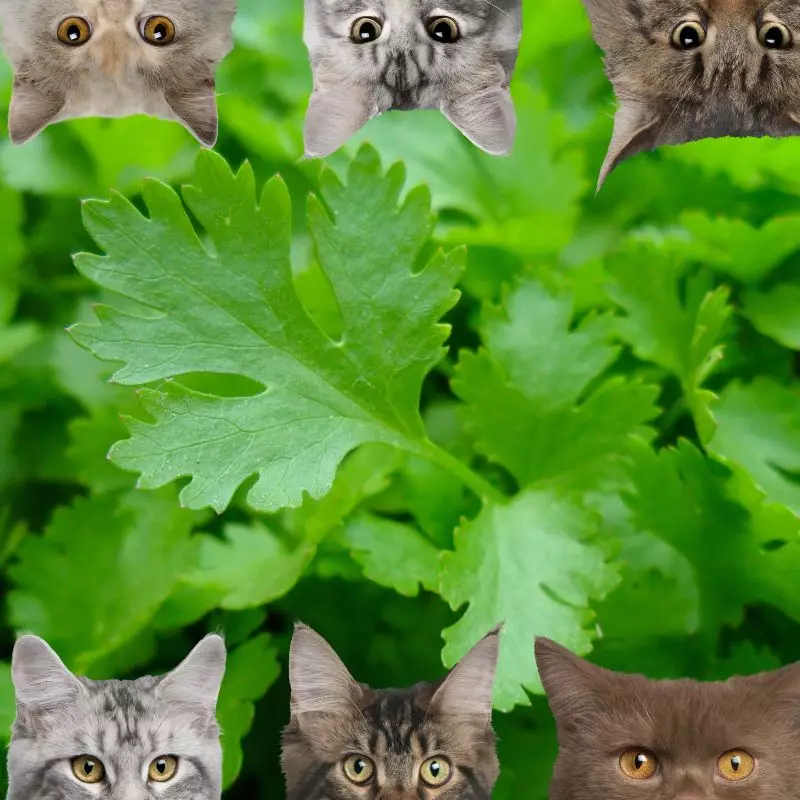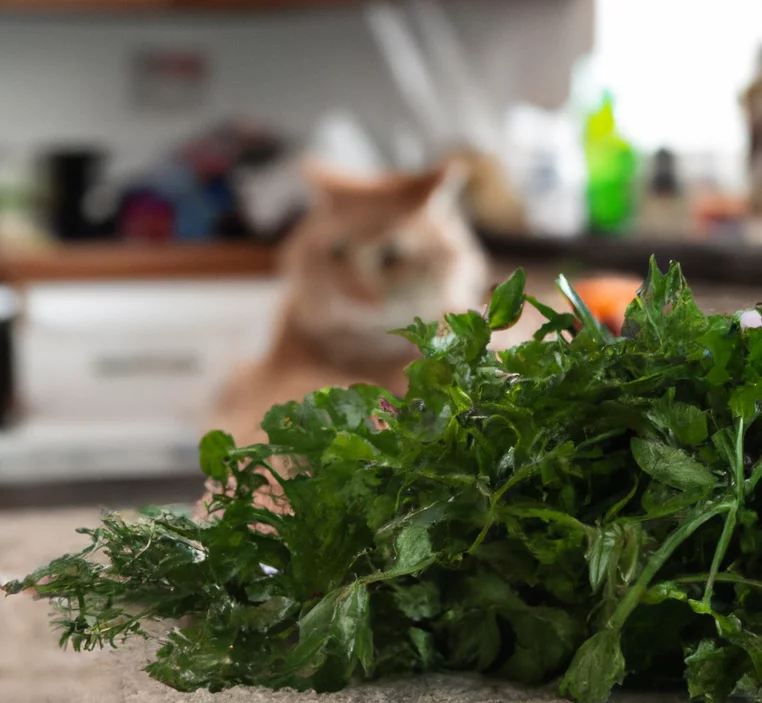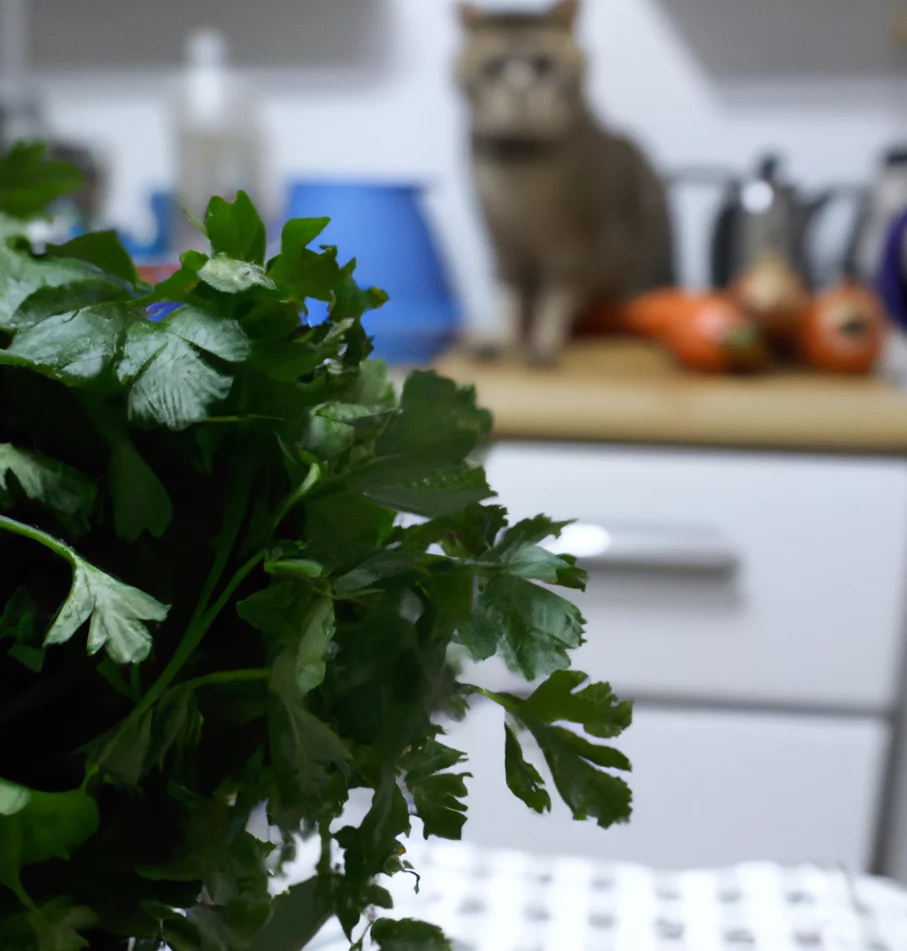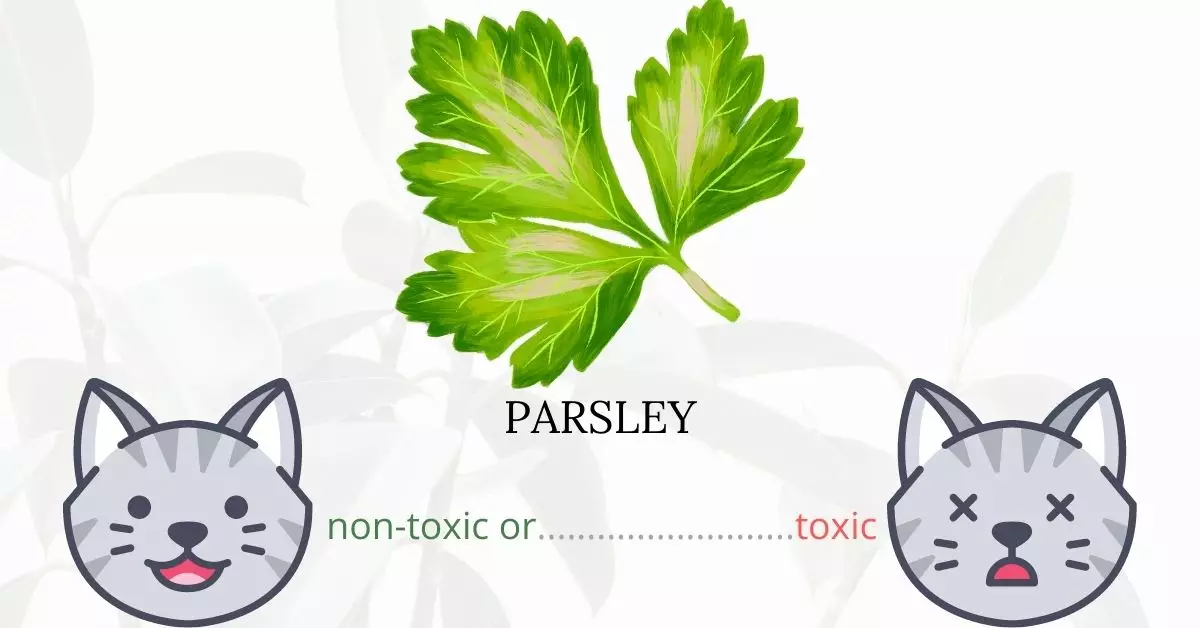Parsley, a ubiquitous herb in many kitchens, is known for enhancing the flavors of various dishes. While it offers numerous health benefits to humans, the same cannot be said for our feline companions. Indeed, parsley contains compounds that are toxic to cats.
This article has been meticulously compiled in collaboration with a team of experienced DVMs (doctors of veterinary medicine). Through their valuable insights, combined with our extensive research from high-authority sources such as ASPCA and PetMD, we aim to provide an accurate and comprehensive understanding of the potential risks parsley poses to cats.
It’s crucial to note that the harmful elements in parsley, known as furanocoumarins, are highlighted by the ASPCA Animal Poison Control Center. When ingested by cats, these compounds can lead to photosensitivity. Issues like dermatitis, skin irritation, and photosensitization have been reported in cats that have consumed significant quantities of parsley. Although parsley is toxic to cats, a substantial amount would be needed to produce poisoning symptoms.
Clinical Signs of Parsley Poisoning in Cats

Parsley plants contain compounds called furanocoumarins, which serve as a natural defense mechanism for the plant. These compounds help protect the plant from threats like insects, mammals, and even fungal attacks. However, when a cat comes in contact with or consumes parsley, these furanocoumarins can induce a series of adverse reactions, especially due to their photosensitizing properties. Here’s a breakdown of the clinical signs and the reasons behind them:
- Dermatitis: This inflammation of the skin arises when the furanocoumarins react with the cat’s skin, especially when exposed to sunlight. The compounds enhance the skin’s sensitivity, causing dermatitis.
- Skin irritation: Direct contact with parsley or its consumption can irritate a cat’s skin, leading to discomfort and the urge to scratch or lick the affected areas.
- Sunburns: Due to the photosensitizing nature of furanocoumarins, cats that have been exposed might experience sunburns even with minimal sunlight exposure.
- Hair or fur loss: The irritation and inflammation from furanocoumarins can cause cats to scratch or groom excessively, leading to patches of hair or fur loss.
- Redness and itching of the skin: This is a direct response to skin irritation. The skin might appear redder than usual and the cat will likely itch or scratch the area persistently.
- Conjunctivokeratitis: This condition pertains to the inflammation of both the conjunctiva (the membrane covering the white part of the eyes) and the cornea. It may arise if a cat’s eyes come in contact with parsley or if the cat rubs its eyes after touching the plant, leading to eye discomfort and potential vision issues.
It’s essential for cat owners to be aware of these symptoms and seek veterinary care if they suspect their feline friend has been exposed to parsley.
First Aid and Treatment of Parsley Poisoning in Cats

If your cat is showing signs of photosensitization, you should immediately stop exposing him to UV radiation. If the cat has recently eaten parsley, the mouth should be rinsed with water and vomiting should be induced to remove any remaining plant material. Your veterinarian may perform gastric lavage and provide activated charcoal as he may deem necessary. While the effects of photosensitivity are still present, your cat should be kept out of direct sunlight.
Steroids for the eyes, as well as photosensitivity medicine, may be administered. Antibiotics will be given by the veterinarian if a skin infection has formed as a result of germs penetrating open wounds. An insect repellent intended for wounds may also be prescribed to prevent further contamination.
Recovery from Parsley Poisoning in Cats

Your cat’s skin blisters should heal within a few days. Scarring and disability may be permanent if your cat’s eye is damaged. Until the poisons have passed through the body, which could take several days, photosensitive cats should be kept out of the sun.
Prevention of Parsley Poisoning in Cats
Avoid feeding food scraps to your cat as it may contain parsley or ingredients that may not be suitable for them. Avoid growing parsley in your gardens. Keep your cat indoors to keep him safe from exposure to toxic plants that may be growing around your neighborhood.
If you love plants but have cats at home, check out these lists:





